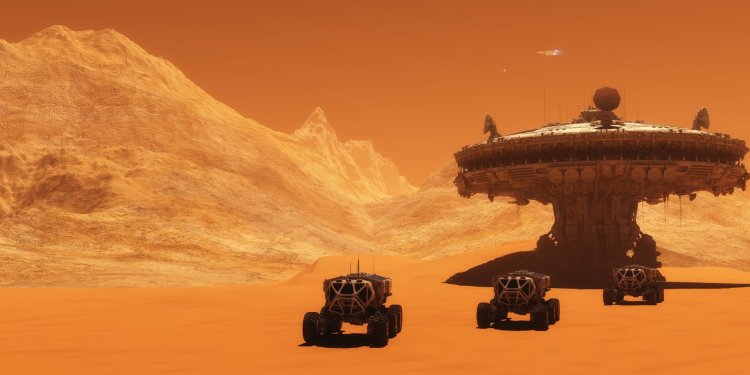NASA has launched a competition

NASA has set aside $70,000 in prize money for developers who create scenarios for inhabiting Mars.
NASA and renowned game company Epic Games have produced a realistic virtual reality simulation of Mars and established the NASA MarsXR Challenge for developers. Developers will be entrusted with generating scenarios that future Mars astronauts and colonists may encounter when they arrive on the red planet.
The Unreal 5 engine was used to create the simulated Mars, and NASA has set aside a $ 70,000 prize fund for developers. Developers can construct a vast variety of scenarios.
From simple activities like establishing a base to more difficult ones like coping with dangerous radiation and sandstorms, which can damage solar panels and cover them in the dust.
Epic Games' virtual reality Mars simulation incorporates whole Mars days with changes in time between day and night, as well as gravity and covers a 250-square-kilometer region.
Developers will have access to a VR XR testbed environment, which will include universal equipment such as space helmets and rovers.
Users must support both versions if they design their own buildings, devices, and equipment.
"Anyone can work with UE5, whether they're a game designer, an architect, a hobbyist, or a rocket scientist," NASA said in a statement. "We can't wait to see what incredible simulations will emerge from the community."
This link has further information and applications for the competition.
Last week, NASA's InSight spacecraft discovered something unusual: the biggest earthquake ever recorded on Mars. The measurement platform is currently counting down the days before it can return to Mars.
With the help of a seismometer, the robot transmitted data to Earth. NASA scientists are relieved to learn that this is exactly what they were hoping for: a huge earthquake of magnitude 5, which falls into the medium-strong category when compared to earthquakes on Earth.
Insight had previously detected a record magnitude of 4.2 earthquakes in August 2021, an earthquake that scientists had sought to investigate since InSight arrived on Mars in October 2018.




























